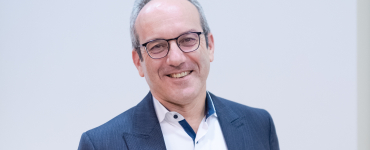The German Federal Ministry of Transport and Digital Infrastructure (BMVI) has just published its new funding policy for Germany’s broadband development program. From the point of view of eco – Association of the Internet Industry, the reconfiguration of the federal funding program is an important, but by no means major, step on the road to implementing gigabit networks. An urgent need for action nonetheless remains. The municipalities have been and are still laden down with evidence testifying to this fact.
What the funding policy actually promises – important changes from the viewpoint of the eco Association:
– Increase of the maximum funding amount from 15 million to 30 million Euro.
– Municipalities can convert their project from FttC (e.g. vectoring) to glass fiber FttB/H from 01.08.2018 until the end of the year.
– For future applications from municipalities, it will suffice for them to prove the eligibility of the area applied for with the findings of the market survey process.
– In future, carrying out a profitability comparison (profitability gap or operator model) to justify the selected funding model will no longer be necessary.
– In a funding project whose economic viability is jeopardized by subsequent expansion announcements, the funding amount can be increased retroactively to compensate for the unexpected loss of income due to the competing supply and the resulting greater profitability gap.
“The new funding guideline contains a sensible package of measures to reduce bureaucracy, expedite funding procedures, and to allow for the implementation of more gigabit connections. But it certainly will not lead to a mega-upgrade of broadband expansion per se; rather, it merely constitutes a building block. In concrete terms, it remains to be seen whether these urgently needed procedural simplifications will take hold, e.g. the scrapping of the evaluation of each application on the basis of a scoring matrix, and the announced rapid disbursement of funding. An additional problem could be the planned compensation in the event of an increase in the profitability gap due to a subsequent, competing offer. This altered profitability gap is likely to be very difficult to pinpoint and could raise practical questions from the perspective of public procurement law,” says eco Director for Infrastructure & Networks Klaus Landefeld.
The rapid expansion of digital infrastructure is the most important prerequisite for the international competitiveness and future viability of the Internet industry and of Germany as a business location. “The Gigabit Society must become a reality by 2025. What is important is that the other barriers to the expansion of gigabit networks are also systematically dismantled – addressing, among other things, the lack of coordination in building; acceleration of the relevant approval procedures; and the shortage of skilled workers in the field of civil engineering, rectifying the latter with measures such as those currently in the pipeline for care personnel. Lack of capacity in civil engineering delays the start of construction, extends the construction period, and significantly drives up the costs of expansion,” explains Landefeld.
eco considers the mainly private-sector expansion of gigabit networks to be the most important pillar for achieving the German and European gigabit targets. Accordingly, it strongly recommends that the federal government not count on maximum proceeds from the 5G frequency auctions, as the companies concerned lack these funds.
For all companies, a regulatory environment offering legal and planning security is crucial. The devaluation of investments or project decisions by, for example, strategic superstructure should not only be prevented (or at least rendered unprofitable) for funded projects. “We see the framework conditions for cooperation and open access models as further important steps that the federal government – and after that, the Federal Network Agency as the responsible regulatory authority – must take as soon as possible, in accordance with the coalition agreement,” Landefeld concludes.




